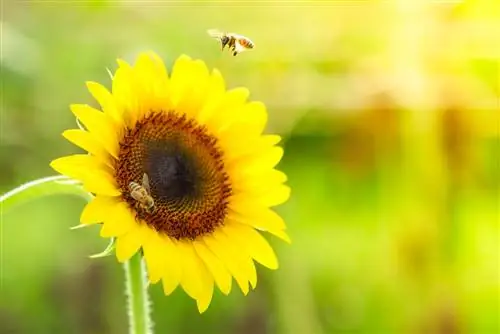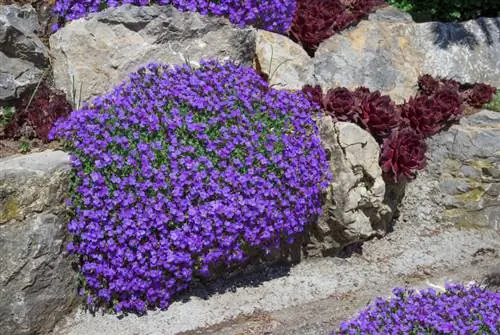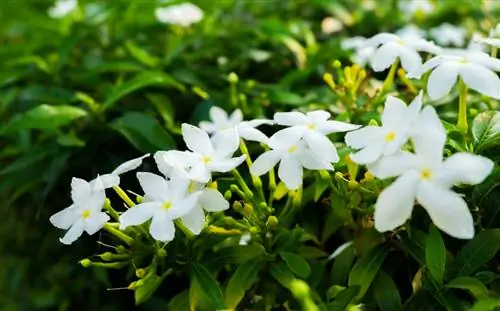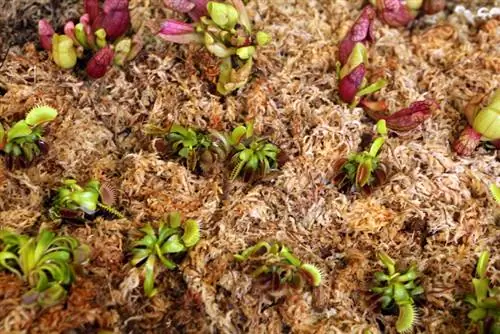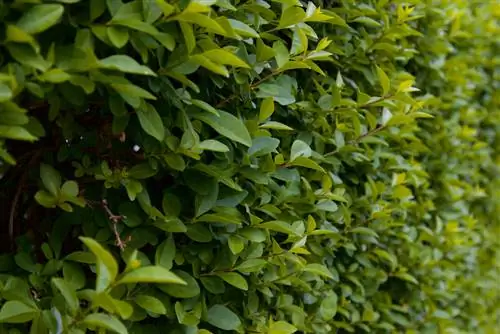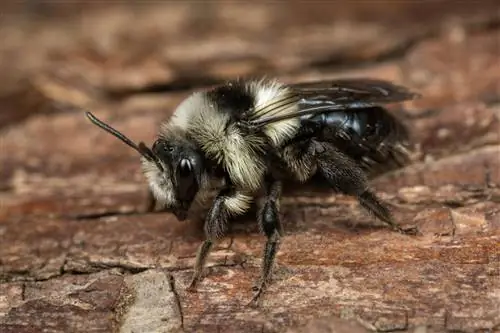- Author admin [email protected].
- Public 2023-12-16 16:46.
- Last modified 2025-01-23 11:22.
Honey bees, as important pollinators, have long been on everyone's lips. If the harvest in the garden is rather poor, you are probably also missing other useful helpers: wild bees. Their numbers have declined sharply in recent years. With our tips you can give the little ones a home and at the same time benefit from their hard work.
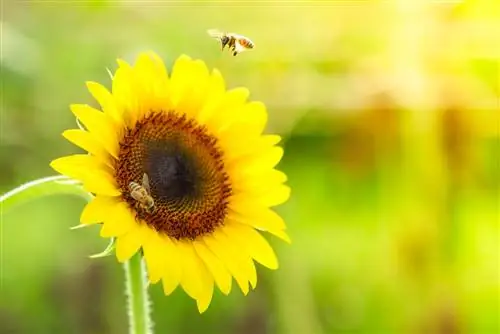
How can I get bees in my garden?
To establish bees in the garden, plant bee-friendly plants such as blackberries, bluebells or lavender, provide natural nesting places such as open ground or dry stone walls and avoid using insecticides. A colorful wildflower meadow is also beneficial for wild bees.
Cultivating the right plants
If wild bees don't find food, they don't even settle. Many cultivated roses, tulips, double dahlias and even popular flowering shrubs such as forsythia look beautiful, but they are completely worthless for bees.
A wild bee-friendly garden is characterized by an abundance of flowers from spring until well into autumn. Very popular with little gourmets are:
- Blackberry and raspberry,
- Sunflowers,
- Catnip,
- Phacelia,
- Dandelion,
- Bellflower,
- Lavender,
- Sage,
- Thyme,
as well as fruit trees, willows, linden trees and horse chestnuts.
A cozy home
Unfortunately, many wild bee nesting aids don't appeal to the little buzzers. For example, these often contain perforated or hollow bricks, which are not colonized by animals. Holes that are too close together and fresh wood are also unsuitable.
You don't necessarily have to offer your little roommates their own “hotel”. If you ensure a high level of structural diversity, the animals will find their specific nesting spots on their own. Also leave weeds standing, don't cut everything back in autumn and don't surround the edges "neatly" with stones. Open areas with sand or a dry stone wall also provide natural nesting places.
Attract wild bees
Various attractants are available commercially that are spread on the leaves of plants. However, these only have an effect if the garden has previously been designed to be wild bee-friendly.
Insecticides are taboo
In an insect-friendly garden, it should be a given to garden in harmony with nature and avoid using insecticides. Even if pests temporarily take over, you should never use these products. Over time, a natural balance is formed, to which a large number of wild bees also contribute.
Tip
Almost all wild bee species benefit from a wildflower meadow. The colorful plants thrive very well in nutrient-poor soils and can therefore decorate a garden corner that previously looked rather barren. You can find a variety of suitable seed mixtures with only native species in stores.

